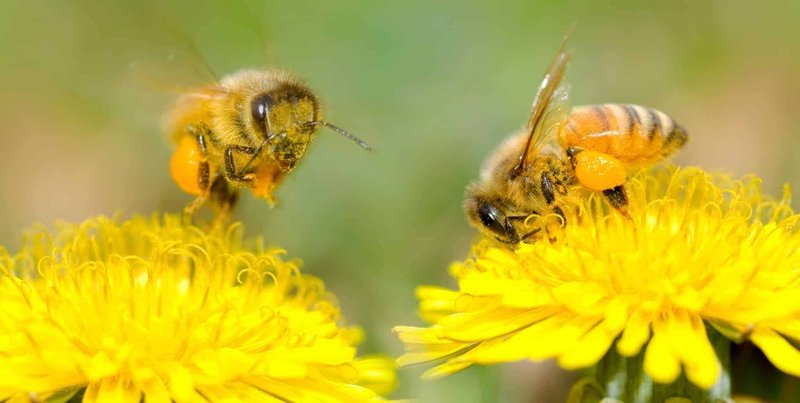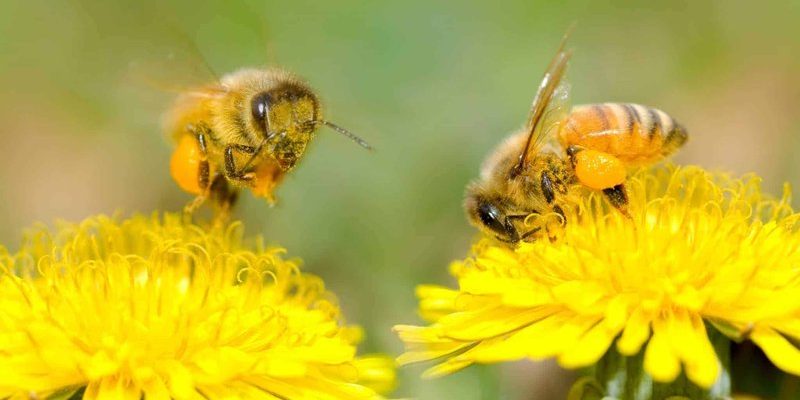
Imagine a world where plants couldn’t reproduce and flowers couldn’t bloom. Without pollinators like flies, many of our favorite fruits and vegetables simply wouldn’t exist. In this article, we’ll dive into the fascinating world of flies, exploring their vital function in pollination and other essential jobs they do in our ecosystem. So grab a cup of coffee, sit back, and let’s uncover the hidden talents of these tiny creatures.
The Role of Flies in Pollination
Pollination is a crucial process for plants, and flies play a pivotal role in this. When they buzz from flower to flower, they transfer pollen, which helps flowers reproduce. Here’s the thing: flies are particularly adept at pollinating plants that have small, sticky, or clustered flowers. While bees are often attracted to bright, colorful blooms, many flies are drawn to flowers that emit strong fragrances, like those found in the umbellifer family, including carrots and parsley.
Interestingly, flies can also be more effective than bees in certain situations. For instance, when plants bloom in cooler weather or have a short flowering period, flies can be more reliable. Their ability to fly in less-than-ideal conditions means they often show up when other pollinators don’t. So next time you see a fly hovering near a flower, remember—it’s not just being annoying; it’s hard at work helping the plant reproduce!
Types of Flies That Pollinate
Not all flies are created equal when it comes to pollination. Some of the most effective pollinating flies include:
- Blow Flies: These flies are attracted to decaying matter and have a particular fondness for flowers with strong scents. They can be surprisingly good at carrying pollen from one flower to another.
- Hoverflies: Often mistaken for bees because of their yellow and black coloration, hoverflies are excellent pollinators. They love to visit a wide variety of flowers, making them versatile helpers in the garden.
- Fruit Flies: While they’re best known for ruining overripe fruit, fruit flies also contribute to pollination. Their small size allows them to reach flowers that larger insects might miss.
Each of these fly types plays a unique role in helping plants grow and thrive. It’s like having a whole team of tiny players, all working towards a common goal: keeping our ecosystem healthy.
Flies as Decomposers
Besides pollination, flies are invaluable when it comes to decomposition. They help break down organic matter, like dead plants and animals. Think of them as nature’s cleanup crew. When something dies, it’s crucial for the ecosystem to recycle that organic material. Flies aid in this process by laying their eggs in decaying matter.
As the larvae hatch, they feast on the decomposing material, breaking it down further. This not only helps clean up the environment, but it also enriches the soil. The nutrients released as flies and their larvae break down matter promote healthy plant growth. Without flies, we’d be drowning in rotting waste, and nutrient cycling would stall.
Flies and Soil Health
Soil health is vital for plant growth, and flies contribute significantly to it. You might be wondering how they do this. When flies break down organic matter, they help enrich the soil with nutrients. This nutrient-rich soil leads to better plant growth, which further supports our ecosystem.
Another aspect of flies’ contribution to soil health is their role in controlling pest populations. Many flies feed on pesky insects and their larvae, which helps keep pest populations in check. Healthy soils mean healthy plants, so flies play an indirect but crucial role in the agricultural system.
Flies in the Food Chain
Flies are also critical players in the food chain. They serve as a food source for various animals, including birds, bats, and amphibians. When flies reproduce, they create a food surplus for other species in the ecosystem. This means that flies help maintain balance within various ecosystems.
Imagine a world without flies; many of these predators would struggle to find enough food. A decline in fly populations could lead to a cascade of effects, disrupting the entire food chain. So, in essence, flies might be small, but they have an outsized impact on biodiversity.
Flies in Research and Medicine
Interestingly, flies have made their mark in the world of science and medicine too. The common fruit fly, *Drosophila melanogaster*, has long been a model organism in genetics. Scientists study these flies to understand fundamental biological processes. Their short life cycles and rapid reproduction make them perfect for research, shedding light on topics like genetics, behavior, and aging.
Moreover, flies are being studied for their potential benefits in medicine. For instance, certain fly larvae can be used for medical purposes, like cleaning wounds by consuming dead tissue. This method can speed up recovery and prevent infections. So, the next time you swat a fly, keep in mind that they might have more to offer than meets the eye.
How to Attract Beneficial Flies to Your Garden
If you’re interested in reaping the benefits of flies in your garden, there are several ways to attract them. Here are some tips to get you started:
- Plant Variety: Incorporate a wide range of flowers, including those with strong scents. Plants like umbellifers (carrots, dill, and parsley) are particularly effective at attracting pollinating flies.
- Avoid Pesticides: Many pesticides can harm beneficial fly populations. Opt for organic gardening methods and natural pest control to maintain a healthy ecosystem.
- Create Habitats: Leave some areas of your garden a bit messy. Piles of leaves or wood can provide perfect breeding grounds for flies, helping to support their populations.
By encouraging these beneficial insects, you’ll not only support your plants but also contribute to a balanced ecosystem.
Flies often get a bad reputation, but they’re truly remarkable creatures that contribute significantly to our ecosystems. From pollination to decomposition and even playing a role in research, they’re essential for maintaining a healthy environment. By understanding their importance, we can appreciate these little workers buzzing around us. So, the next time you spot a fly, take a moment to recognize its role in nature. They might be small, but flies do big things. After all, every creature, no matter how tiny, has its part to play in the grand symphony of life.

